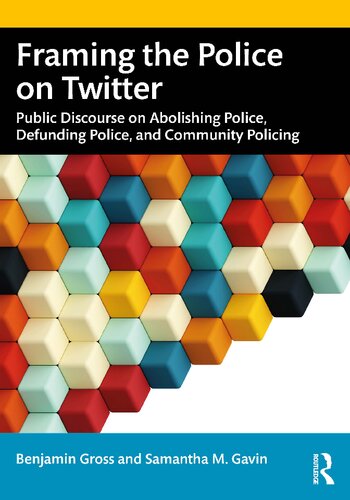

Most ebook files are in PDF format, so you can easily read them using various software such as Foxit Reader or directly on the Google Chrome browser.
Some ebook files are released by publishers in other formats such as .awz, .mobi, .epub, .fb2, etc. You may need to install specific software to read these formats on mobile/PC, such as Calibre.
Please read the tutorial at this link: https://ebookbell.com/faq
We offer FREE conversion to the popular formats you request; however, this may take some time. Therefore, right after payment, please email us, and we will try to provide the service as quickly as possible.
For some exceptional file formats or broken links (if any), please refrain from opening any disputes. Instead, email us first, and we will try to assist within a maximum of 6 hours.
EbookBell Team

0.0
0 reviewsThis work assesses the various meanings attached to calls for police reform in the public discourse on social media, providing readers with a greater appreciation of the assumptions, empirical claims, and rhetorical nuances that underpin the current dialogue about police policy. Drawing upon an intersectional theoretical and mixed-methods approach, the authors look at what it means to "defund" or "abolish" the police, as well as the definition of community policing.
The death of George Floyd in 2020 resulted in national and international protests during which some members of the public began to demand "abolishing" or "defunding" the police, ideas previously put forth in academic arenas. However, these public protests were often presented in rhetorical ways that differed from the academic roots of the ideas. This book takes a deep look into what it means to "defund" or "abolish" the police, drawing upon academic origins of the concepts while at the same time examining how the public has used Twitter to define and discuss these ideas. The authors identify frameworks built around the concepts, discuss facts and perspectives that have contributed to these ideas, and explain how quantitative methods can be used to illustrate the most prominent frames.
This book incorporates both quantitative and qualitative means of research in an examination of Twitter and brings clarity to the conversation surrounding the "abolish the police", "defund the police", and "community policing" concepts. It is suitable for undergraduate to graduate-level college courses in criminology, sociology, policing, race in America, communication, social media, and research methods.